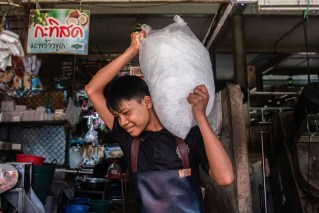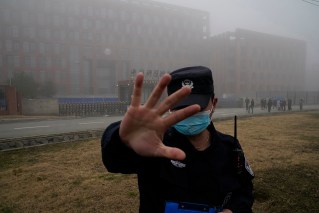Rescuers have scaled back operations in Afghanistan’s devastated northwest as chances of finding survivors diminished 72 hours after the deadliest earthquakes to rattle the country in years, while villagers in the area held mass funerals for their dead.
At least 2400 people were killed and more than 2000 injured, the Taliban-run government said, in the multiple earthquakes that struck northwest of the city of Herat on Saturday, levelling thousands of homes.
Most of the casualties were women and children, the World Health Organisation said.
Relief and rescue efforts have been hampered by infrastructure left crumbling by decades of war and a lack of foreign aid which once formed the backbone of the economy, but which has dried up since the Taliban took over.
“The operation is almost done,” spokesman for the Disaster Management Ministry Janan Sayeeq told Reuters, adding that rescue efforts were still going on in some villages.
The UN Humanitarian Office had on Sunday put the death toll from the quakes at 1023, with an additional 1663 people injured, and more than 500 missing.
Sayeeq said a final casualty toll would be released soon.
History of earthquakes
Hemmed in by mountains, Afghanistan has a history of strong earthquakes, many in the rugged Hindu Kush region bordering Pakistan.
Saturday’s earthquakes – one with a 6.3 magnitude – were one of the deadliest in the world this year after the quakes in Turkey in Syria that killed about 50,000 people.
The quakes flattened buildings in some 20 villages in the northwest, including Siah Aab village in Zinda Jan district, which lost at least 300 residents.
In the village on Tuesday, funeral prayers were held for the dead before they were buried, wrapped in blankets, in freshly dug graves.
The UN’s humanitarian office has announced $US5 million ($7.8 million) worth of assistance for the quake response, but immediate material support has come from just a few countries.
Afghanistan’s healthcare system, largely reliant on foreign aid, has faced crippling cuts in the two years since the Taliban took over and much international assistance was halted.
As well as medical and food aid, survivors are in dire need of shelter as temperatures drop, the head of the World Health Organisation’s emergency response said.
–AAP








